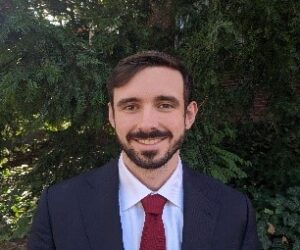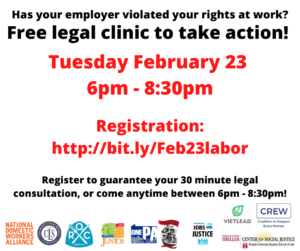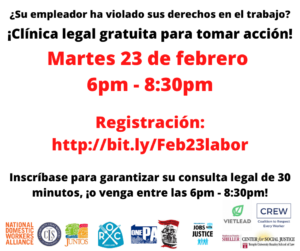-Stephanie Curl, Lauren Williams and Josh Lachewitz
This semester, we set out to create user-friendly materials to assist recipients of Supplemental Security Income (SSI) – a federal safety-net program that provides essential monthly benefits to people who are 65 and older, blind, or disabled and who are very low income. SSI is not the same as Social Security, for which many SSI beneficiaries don’t qualify. To be eligible for SSI, a person must have access to very little money (carefully calculated using many factors that look at assets and income) and have a documented and ongoing disability that makes it difficult or impossible to work.
Our project focused on two aspects of SSI. First, we addressed the situation in which the Social Security Administration (SSA) tells recipients that their benefits will be cut because they have too much money. Second, we addressed overpayments, which happen when SSA informs recipients that SSA paid them too much and now the recipient must pay SSA back. Focusing on these two areas — both of them sources of great stress and confusion to SSI recipients — allowed us to narrow the scope of a very complex topic.
Sara Lynch, a staff attorney at Community Legal Services (CLS), had brought the idea for this project to the Access to Justice Clinic after seeing clients who were confused and scared about what to do if their benefits were cut or they were told they owed SSA money. We began our project with research—wading through as much material as we could find on SSI—and quickly found out that SSI is incredibly complex. We then took questions and concerns to several local attorneys and community advocates who specialize in assisting clients through the SSI process. From those meetings, we were able to narrow down our project to the two areas described above; however, we also realized that there are many more aspects of SSI that students could focus on for future projects.
Steph spoke to a CLS client who had been denied SSI several times. The client expressed frustration at the long wait times that are characteristic of the appeals process. Ultimately, her first appeal resulted in a denial after a year of waiting for a response. The client said that she felt like her application was being sent off into a black hole and no one wanted to help her until she came to CLS.
After talking with the CLS client, our goal became to create materials that were not only user-friendly but that empowered people as they advocated for themselves. Our first pass resembled the information that was already available on the Social Security website—a bit academic, not conversational and a little too dense. We incorporated the feedback we received, and learned that our materials would be best presented as part of a family of materials CLS provides for clients, all with the same look and feel. CLS provided a template to us and we were able to drop our copy directly into it. We had been playing around all semester with graphics in Microsoft Word, but it turned out we didn’t have to be quite so creative.
We ended up creating a flyer informing SSI recipients about how to stay on SSI, which addresses what to do if recipients find that their benefits have been cut or reduced, and importantly, how to keep it from happening again. We also created a flyer on what recipients can do when SSA tells them they have been overpaid.
Throughout the project, we collaborated with Dacil Keo, a paralegal at CLS who works with clients, often when they have had their benefits cut off or reduced. She told us that many members of the Asian-American community in Philadelphia are affected, and our materials might be even more useful if translated into some of their native languages. Dacil also invited us to sit in on a meeting of the Asian Pacific American Social Services Providers Group, composed of individuals representing organizations that assist Asian Americans in Philadelphia. Through that discussion, we learned that the most useful languages for translation of our materials were likely Chinese, Cambodian and Vietnamese. But we are also left with the feeling that there is so much more to do! Immigration status affects SSI—what about a resource for that? Many community organizations work with people eligible for SSI—what about creating a resource for advocates to use when their work coincides with an application or an appeal related to SSI? What about the homeless population, for whom our suggestions about keeping receipts and documentation in a shoebox or a folder were particularly poorly suited? What could we do for them?
Though we learned a lot this semester and hopefully created some useful resources for CLS, we are hopeful and enthusiastic that other students may continue this work in coming semesters.



